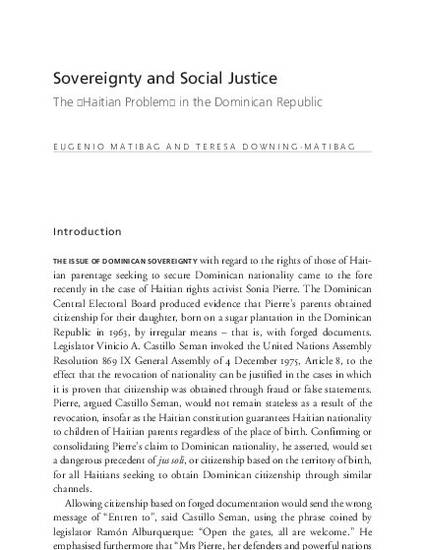
THE ISSUE OF DOMINICAN SOVEREIGNTY with regard to the rights of those of Haitian parentage seeking to secure Dominican nationality came to the fore recently in the case of Haitian rights activist Sonia Pierre. The Dominican Central Electoral Board produced evidence that Pierre’s parents obtained citizenship for their daughter, born on a sugar plantation in the Dominican Republic in 1963, by irregular means – that is, with forged documents. Legislator Vinicio A. Castillo Seman invoked the United Nations Assembly Resolution 869 IX General Assembly of 4 December 1975, Article 8, to the effect that the revocation of nationality can be justified in the cases in which it is proven that citizenship was obtained through fraud or false statements. Pierre, argued Castillo Seman, would not remain stateless as a result of the revocation, insofar as the Haitian constitution guarantees Haitian nationality to children of Haitian parents regardless of the place of birth. Confirming or consolidating Pierre’s claim to Dominican nationality, he asserted, would set a dangerous precedent of jus soli, or citizenship based on the territory of birth, for all Haitians seeking to obtain Dominican citizenship through similar channels.
Available at: http://works.bepress.com/eugenio_matibag/14/

This is an article from Caribbean Quarterly 57 (2011): 92. Posted with permission.